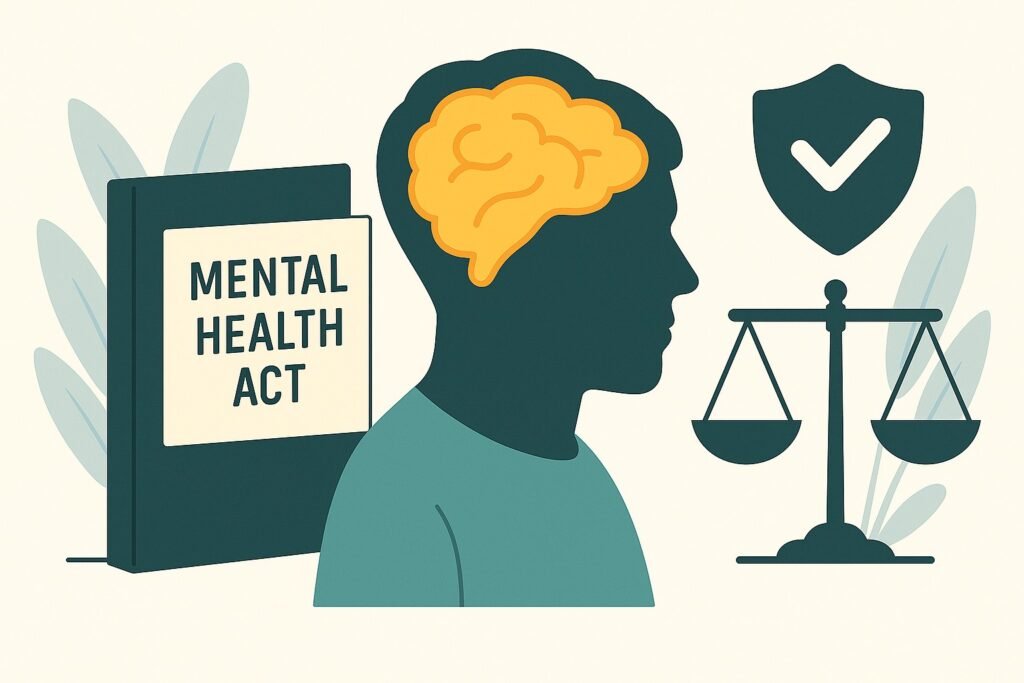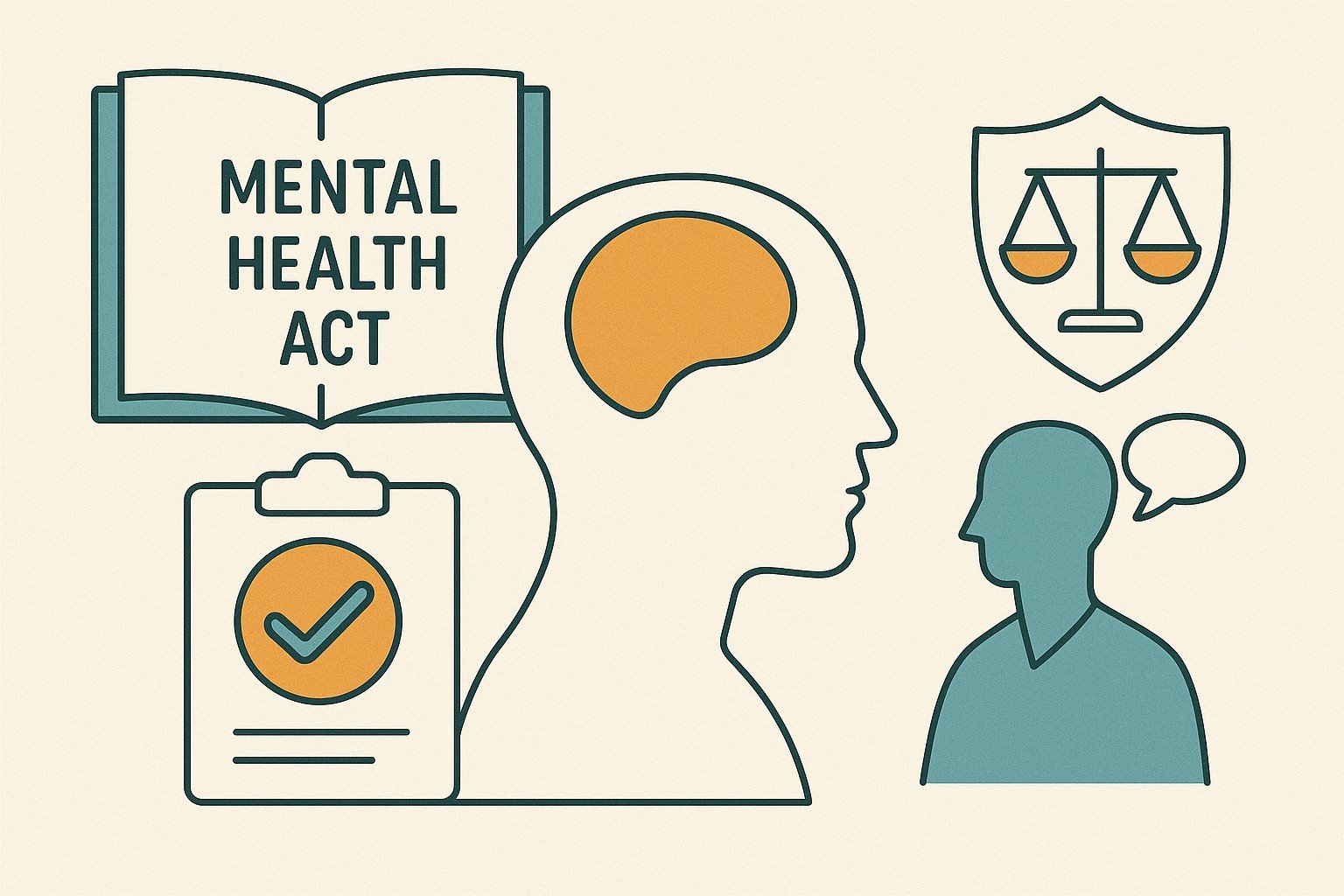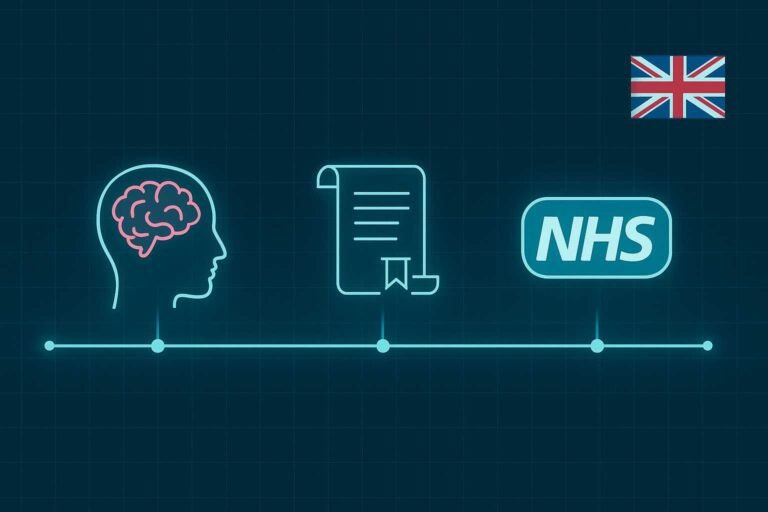The Mental Health Act – What You Should Know
It’s important for you to understand the fundamentals of the Mental Health Act, as it plays a vital role in protecting the rights of individuals with mental health issues. This legislation not only aids in treatment but also ensures that your rights are upheld. You’ll learn about the processes of voluntary and involuntary admission, the criteria for treatment, and how this act promotes your well-being. Awareness of these details can empower you to navigate mental health challenges more confidently and understand your options when it comes to seeking help.
Key Takeaways:
- The Mental Health Act provides a framework for the assessment, treatment, and rights of individuals with mental health conditions.
- Individuals can be detained under the Act for their safety and the safety of others, particularly when they are deemed to pose a risk due to their mental health condition.
- Patients have specific rights when being treated under the Act, including the right to appeal their detention and the right to be informed about their treatment.
- The Act emphasizes the importance of mental health advocacy and the role of independent advocates in supporting patients’ rights.
- Regular reviews and assessments are mandated to ensure that the detention and treatment of individuals remain appropriate and necessary.
Overview of the Mental Health Act
Before venturing into the specifics, it’s necessary to understand that the Mental Health Act is a pivotal piece of legislation that governs the treatment and care of individuals with mental health disorders. It provides a framework for the assessment, treatment, and rights of those experiencing mental health issues, ensuring that they receive appropriate support while safeguarding their rights and freedoms.
Purpose and Objectives
For you, the Mental Health Act serves multiple purposes, primarily focusing on protecting and promoting the welfare of individuals with mental health conditions. It aims to ensure that you receive appropriate treatment, facilitate your recovery, and empower you to participate in decisions about your care, while also providing legal protections and support for your human rights.
Key Definitions
Purpose of the Mental Health Act includes a number of specific definitions that are vital for understanding its framework. Key terms often include “mental disorder,” which refers to diagnosed mental health conditions that substantially affect your thoughts, perceptions, emotions, or behavior. Another necessary term is “detention,” which pertains to the legal process of requiring treatment for individuals who may pose a risk to themselves or others due to their mental health issues.
In fact, the Mental Health Act outlines various definitions that help clarify your rights and obligations. The term “mental disorder” is significant as it shapes who qualifies for protection and treatment under the Act. When referring to “detention,” it is important to understand that this does not merely imply confinement; instead, it emphasises the need for appropriate care and support. Understanding these key definitions empowers you to navigate the system effectively and advocate for your rights and well-being.
Legal Framework
While navigating the complexities of the Mental Health Act, it is necessary to understand the legal framework that underpins it. This framework provides the structure within which mental health services operate, outlining the rights of individuals and the responsibilities of healthcare providers. By familiarising yourself with this legal framework, you empower yourself to advocate for your rights or the rights of someone you care about in mental health care settings.
Key Legislation
Legislation surrounding the Mental Health Act primarily includes the Act itself, which sets the standards for mental health assessment and treatment. It defines the criteria for involuntary treatment and safeguards rights for those affected. Understanding this key legislation is vital for you to grasp the rights and responsibilities that come into play during mental health care decisions.
Amendments and Revisions
Any changes to the Mental Health Act, known as amendments and revisions, significantly impact the way mental health care is administered. These modifications can enhance patient rights or adjust the criteria for treatment, making it necessary for you to stay informed about updates that may affect your or your loved ones’ care.
Amendments to the Mental Health Act have introduced both positive advancements and serious concerns. For instance, reforms may enhance procedural safeguards, ensuring that your rights are respected during treatment. However, it’s important to note that certain revisions could also lead to greater involuntary commitment, raising concerns about personal autonomy. Staying updated on these changes allows you to better advocate for your rights and ensure a supportive environment for mental well-being.
Rights of Individuals
Your rights under the Mental Health Act are designed to protect you during your treatment. You have the right to be informed about your diagnosis, treatment options, and to participate in your care. Additionally, you can express any concerns without fear of retaliation, ensuring your voice is heard throughout the process.
Patient Rights
After being admitted for treatment, you retain specific rights. You must be treated with dignity, receive adequate healthcare, and have access to information about your condition and treatment options. You can also request a second opinion and participate in decisions regarding your care.
Caregiver and Family Rights
At the same time, caregivers and family members also have rights that are important for supporting you during your treatment. They can participate in discussions about your care, provided you consent and it’s in your best interest.
Due to the sensitive nature of mental health treatment, caregivers and family members play a crucial role in supporting you. They have the right to receive information about your treatment plan, participate in care discussions when appropriate, and ensure that your needs are being met. It’s important that the mental health system recognises their involvement as it can significantly impact your recovery journey. Engaging family support can often lead to better outcomes and a stronger support network for you.

Assessment and Treatment Procedures
To ensure appropriate care, assessment and treatment procedures under the Mental Health Act involve a systematic evaluation of your mental health needs. Qualified professionals will conduct thorough assessments to determine if you meet specific criteria for further intervention. This process is designed to identify your needs accurately and provide suitable treatment options tailored to your situation.
Criteria for Assessment
Between various attributes such as your mental state, behavior, and the potential risks you pose to yourself or others, specific criteria guide your assessment. This assessment is significant because it lays the foundation for understanding the severity of your condition and deciding on the most appropriate course of action.
Treatment Options Available
Assessment findings influence the treatment options available to you under the Mental Health Act. You may be offered inpatient care if your condition requires close monitoring, or outpatient services if you are stable. In both cases, psychotherapy, medication, and community support programs may be included in your treatment plan, aiming to enhance your overall well-being.
Indeed, you may have access to a variety of treatment options depending on your assessment outcomes. These options are designed to cater to your unique needs, potentially including cognitive behavioural therapy, medications such as antidepressants or antipsychotics, and support groups that foster a sense of community. Every plan emphasises your participation and autonomy, empowering you to take charge of your recovery while ensuring your safety and well-being during the process.
Involuntary Treatment
Once again, the concept of involuntary treatment arises as a critical aspect of the Mental Health Act. This approach is typically employed when a person poses a risk to themselves or others and cannot provide informed consent for treatment. It is important to understand the procedures and implications surrounding such decisions, as they can profoundly impact your rights and well-being. Understanding how involuntary treatment works can help you navigate complex situations regarding mental health care.
Criteria for Involuntary Admission
Against a backdrop of legal guidelines, the criteria for involuntary admission generally involve the presence of a mental illness combined with a threat to oneself or others. You may find yourself subject to this if you’re unable to understand your need for treatment or if your condition prevents you from making safe decisions. Authorities typically assess your situation thoroughly before determining the necessity of involuntary admission.
Legal Protections for Patients
Involuntary treatment may seem daunting, but legal protections are in place to safeguard your rights. You have the right to humane treatment, regular reviews of your situation, and the opportunity to challenge your involuntary status legally. These protections ensure that your voice is heard and that measures do not exceed their intended scope.
Understanding your legal protections is vital when facing involuntary treatment. It includes your rights to humane care, regular assessments, and the ability to appeal decisions regarding your admission status. These safeguards exist to prevent potential abuse and ensure that you receive appropriate and compassionate care. Being informed about these rights can empower you to advocate for yourself or a loved one during difficult circumstances. Remaining aware of these protections can significantly impact the quality of your treatment and overall experience.
Advocacy and Support Resources
For anyone navigating the complexities of mental health, advocacy and support resources can provide vital guidance. These resources can help you understand your rights under the Mental Health Act, access services, and connect with professionals who advocate for your needs. You are not alone in this journey, and there are numerous organisations willing to support you.
Mental Health Advocacy Groups
The presence of mental health advocacy groups around you can significantly impact your experience with mental health services. These organisations work tirelessly to ensure that your voice is heard and that your rights are upheld. They can offer personalised support and resources, making it easier for you to navigate complex systems.
Support Services Available
Support services can greatly enhance your mental well-being by offering tailored assistance when you need it most. Understanding the variety of services available, such as counselling, crisis intervention, and peer support, can empower you to make informed decisions about your mental health care. Many organisations provide confidential support and guidance, ensuring that you have the resources to maintain your mental health journey. Whether seeking immediate help during a crisis or long-term support, these services aim to improve your quality of life and connect you with valuable resources in your area.
To wrap up
As a reminder, understanding the Mental Health Act is important for navigating your rights and responsibilities when it comes to mental health care. This legislation not only protects your rights but also informs you about the processes involved in treatment, assessment, and support. By familiarising yourself with the provisions of the Act, you can better advocate for your mental health needs and ensure that you receive appropriate care when necessary. It’s your right to know how the Act can impact your life and the support options available to you.
FAQ
Q: What is the Mental Health Act?
A: The Mental Health Act is legislation that governs the treatment and care of individuals with mental health conditions. It provides guidelines for the involuntary detention and treatment of individuals deemed to pose a risk to themselves or others due to their mental health status. The Act is designed to balance the rights of the individual with the need for care and protection.
Q: Who can be detained under the Mental Health Act?
A: Individuals can be detained under the Mental Health Act if they are suffering from a mental disorder and require treatment. This can include those who are at risk of harming themselves or others, or who are unable to adequately care for themselves. Detention usually follows an assessment by qualified mental health professionals, such as psychiatrists.
Q: What rights do individuals have under the Mental Health Act?
A: The Mental Health Act ensures that individuals have specific rights, including the right to be informed about their treatment, access to legal representation, and the right to appeal their detention. Additionally, individuals have the right to communicate with family or friends and to receive appropriate care and support during their treatment.
Q: How does the Mental Health Act protect individuals’ autonomy?
A: While the Mental Health Act allows for involuntary treatment in certain circumstances, it also emphasises the importance of individual autonomy. The Act mandates that, whenever possible, individuals should be involved in their treatment decisions. It promotes the least restrictive option, meaning that alternatives to detention, such as voluntary treatment, should be considered first.
Q: What are the implications of the Mental Health Act for healthcare providers?
A: Healthcare providers must ensure compliance with the Mental Health Act when delivering care and treatment to individuals experiencing mental health issues. This includes conducting thorough assessments, documenting information appropriately, providing necessary information to patients, and respecting the rights of individuals. Non-compliance can lead to legal consequences and ethical challenges in providing effective care.







